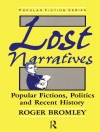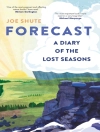Plants have played key roles in science fiction novels, graphic novels and film. John Wyndham’s triffids, Algernon Blackwood’s willows and Han Kang’s sprouting woman are just a few examples. Plants surround us, sustain us, pique our imaginations and inhabit our metaphors – but in many ways they remain opaque. The scope of their alienation is as broad as their biodiversity. And yet, literary reflections of plant-life are driven, as are many threads of science fictional inquiry, by the concerns of today. Plants in Science Fiction is the first-ever collected volume on plants in science fiction, and its original essays argue that plant-life in SF is transforming our attitudes toward morality, politics, economics and cultural life at large – questioning and shifting our understandings of institutions, nations, borders and boundaries; erecting and dismantling new visions of utopian and dystopian futures.
Зміст
Contributors
Introduction – Katherine E. Bishop
Abjection
Weird Flora: Plant Life in the Classic Weird Tale – Jessica George
‘Bloody unnatural brutes’: Anthropomorphism, Colonialism and the Return of the Repressed in John Wyndham’s The Day of the Triffids – Jerry Määttä
Botanical Tentacles and the Chthulucene- Shelley Saguaro
Affinity
Between the Living and the Dead: Vegetal Afterlives in Evgenii Iufit’s and Vladimir Maslov’s Silver Heads – Brittany Roberts
Vegetable Love: Desire, Feeling, and Sexuality in Botanical Fiction – T. S. Miller
Alternative Reproduction: Plant-time and Human/Arboreal Assemblages in Holdstock and Han – Elizabeth Heckendorn Cook
Accord
Sunlight as a Photosynthetic Information Technology: Becoming Plant in Tom Robbins’s Jitterbug Perfume – Yogi Hale Hendlin
The Question of the Vegetal, the Animal, the Archive in Kathleen Ann Goonan’s Queen City Jazz – Graham J. Murphy
Queer Ingestions: Weird, Vegetative Bodies in Jeff Vander Meer’s Fiction – Alison Sperling
The Botanical Ekphrastic and Ecological Relocation – Katherine E. Bishop
Selected Bibliography
Index
Про автора
All levels of academic readers will find value in this collection (English, science fiction studies, ecocriticism, posthumanism) as will any number of lay readers.












